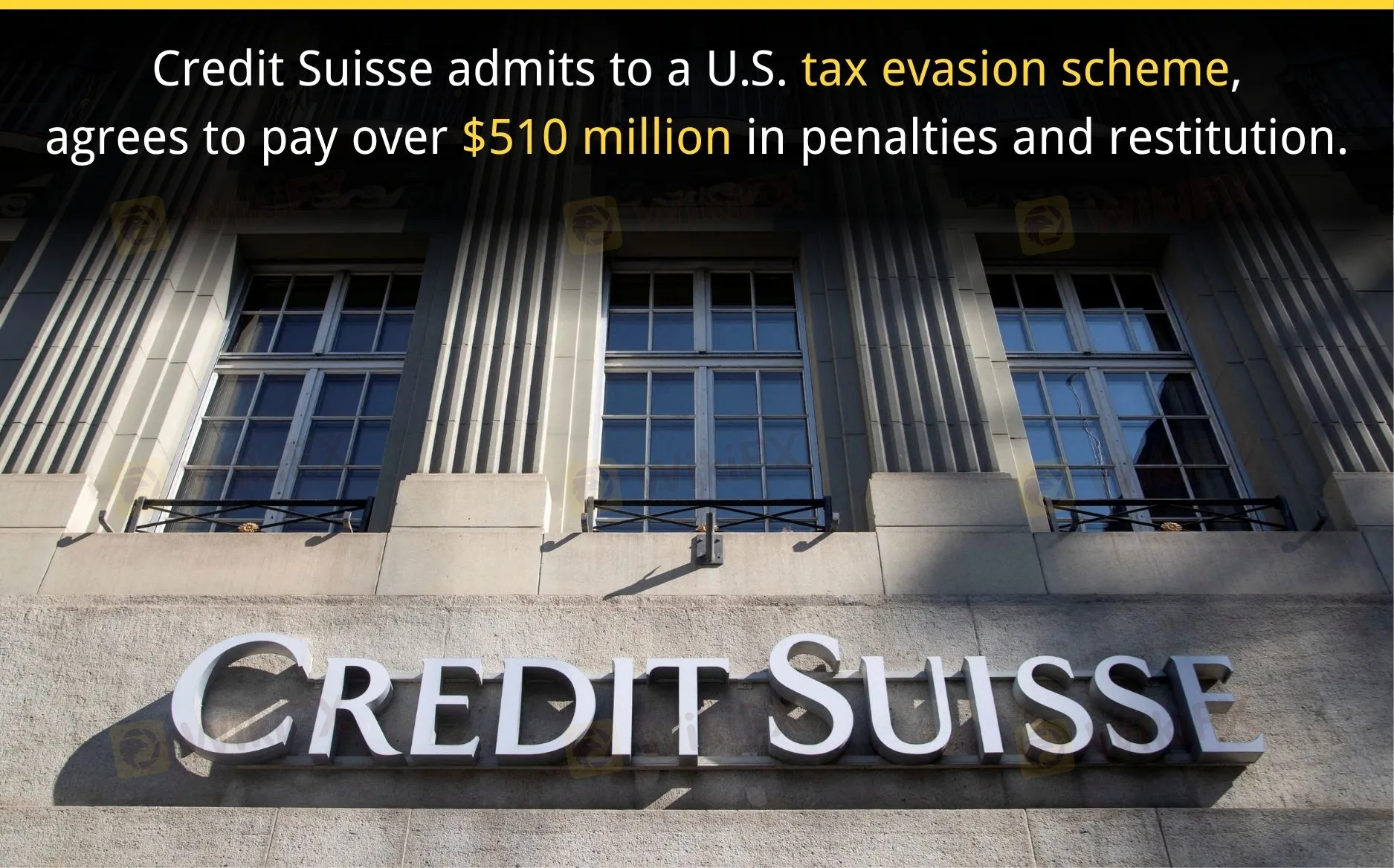简体中文
繁體中文
English
Pусский
日本語
ภาษาไทย
Tiếng Việt
Bahasa Indonesia
Español
हिन्दी
Filippiiniläinen
Français
Deutsch
Português
Türkçe
한국어
العربية
Credit Suisse Admits to U.S. Tax Evasion Scheme, Agrees to Over $510 Million Settlement
Abstract:Credit Suisse has pleaded guilty to conspiring with U.S. taxpayers to hide over $4 billion in offshore accounts, violating a previous 2014 plea deal, and will pay more than $510 million in penalties.

Credit Suisse Services AG, a subsidiary of the former Swiss banking giant Credit Suisse Group, has pleaded guilty in a U.S. federal court to conspiring with American clients to hide more than $4 billion in offshore accounts. The admission marks a significant breach of a previous plea deal from 2014 and underscores the ongoing global effort to clamp down on tax evasion involving undeclared foreign assets.
A Repeated Pattern of Misconduct
The guilty plea stems from a wide-ranging investigation by the U.S. Department of Justice and the Internal Revenue Service (IRS). According to court filings, from 2010 to 2021, Credit Suisse AG—prior to its acquisition by UBS—deliberately helped U.S. taxpayers shield assets from U.S. tax authorities. These efforts included opening undeclared accounts, falsifying records, and even fabricating charitable donation documents to disguise the source of funds. Authorities reported over 475 undeclared accounts, with more than $1 billion held in non-compliant holdings.
This conduct violates the terms of a 2014 plea agreement, in which Credit Suisse paid $2.6 billion to resolve similar charges and committed to ending its involvement in undeclared offshore banking for U.S. clients. However, the latest findings reveal that the bank continued this behavior well beyond the agreed period, breaching the original deal and facing new charges as a result.
Additional Violations in Singapore Operations
Separate from the U.S.-focused misconduct, Credit Suisse AGs Singapore branch was found to have failed in properly managing accounts linked to U.S. persons. Between 2014 and mid-2023, Credit Suisse AG Singapore oversaw more than $2 billion in U.S.-related accounts without conducting the due diligence required under U.S. regulations.
The misconduct came to light in 2023, following the merger of UBS AG and Credit Suisse AG. UBSs internal review uncovered the unreported accounts, which were promptly frozen and disclosed to U.S. regulators. In response, Credit Suisse AG Singapore entered into a non-prosecution agreement with the U.S. Department of Justice, resolving the issue without criminal charges in exchange for cooperation and compliance commitments.
Penalties and Future Oversight
As part of the resolution, Credit Suisse Services AG will pay over $510 million in penalties, including restitution and asset forfeiture. The agreement does not protect any individuals from prosecution, signaling the Justice Departments intent to hold those responsible accountable beyond institutional fines.
UBS, now the legal successor of Credit Suisse, is required to fully cooperate with any further investigations. This includes disclosing any additional undiscovered accounts that may involve undeclared U.S. taxpayers.
As regulatory scrutiny intensifies, this case serves as a stark warning to other institutions that aiding in tax evasion—even indirectly—can result in significant financial and legal consequences.
Disclaimer:
The views in this article only represent the author's personal views, and do not constitute investment advice on this platform. This platform does not guarantee the accuracy, completeness and timeliness of the information in the article, and will not be liable for any loss caused by the use of or reliance on the information in the article.
Read more

WeTrade Marks 10th Anniversary with Global Campaign, Upgrades and Rewards
The leading financial broker celebrates a decade of excellence with worldwide screen takeovers viewed by millions

SEC Implements New Rules for Crypto-Asset Service Providers
The SEC enforces new 2025 rules and guidelines for Crypto-Asset Service Providers (CASPs) to strengthen regulation, compliance, and investor protection in the Philippines.

FxPro Launches Figma Stock CFDs for Traders Following IPO Surge
FxPro now offers Figma stock CFDs, enabling traders to leverage long & short positions on this high-growth cloud software stock after its successful IPO.

Retired Man Loses Life Savings to ‘Sister Duo’ in Forex Scam
A 77-year-old retiree lost his entire life savings after being persuaded by two women, known to him as “Kelly” and “Lydia,” to invest in a non-existent foreign exchange (forex) trading scheme promising high returns.
WikiFX Broker
Latest News
XS.com Broker Partnership Expands Liquidity with Centroid Integration
EC Markets: A Closer Look at Its Licenses
Housewife Scammed of RM68,242 in Online Investment Scam
From Charts to Profits: Unleashing the Power of Forex Trading Tools
FCA Publishes New Warning List! Check It Now to Stay Safe
Beware of Fake RS Finance: How to Spot Scams
Fortune Wave Solution: SEC Warns of Investment Scam
D. Boral Capital agrees to a fine as a settlement with FINRA
Is TD Ameritrade Safe? How to Spot Fake URLs and Stay Protected
Before You Trade with Quest: 6 Warning Signs to Know
Currency Calculator


